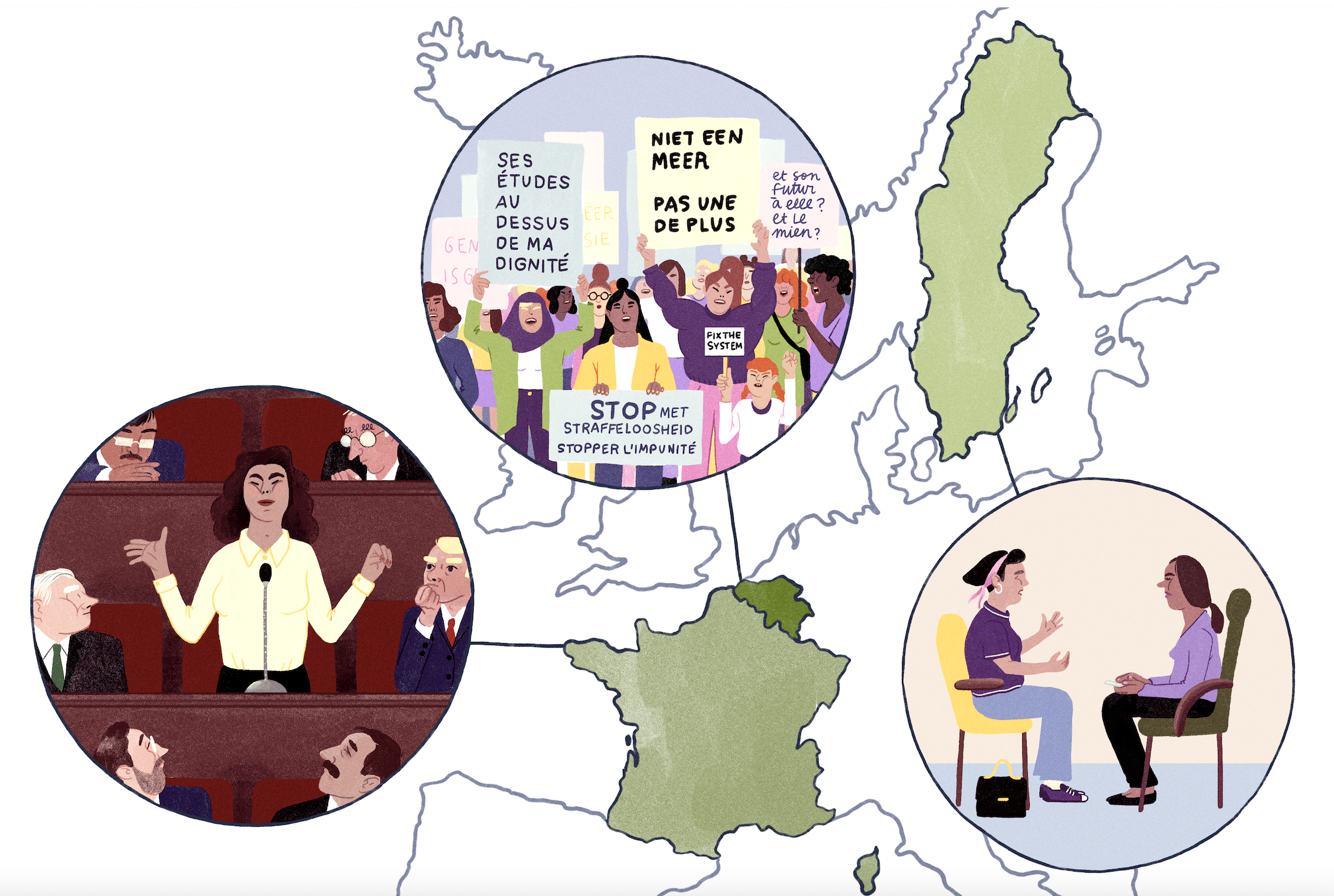Belgium, Sweden and France have all amended their penal codes to include a legal definition of sexual consent — a move widely heralded as a step forward in the fight against sexual violence. But how effective is this shift in practice? And does it affect all women equally?
This cross-border investigation examines the impact of these legal changes in three countries with different social, legal and cultural contexts. While the aim is to reduce sexual violence by addressing impunity and rape culture, the reality is more complex.
In Belgium, the new “Sexual Penal Code” introduced in 2022 more clearly defines punishable behaviours, encouraging more victims to file complaints.
However, dismissal rates remain high — rising in near proportion to the number of complaints. Cases involving the so-called “grey zone” still pose difficulties, with some legal interpretations continuing to obscure situations where consent may have been coerced.
In France, where a new law was passed in June 2025, supporters highlight a key shift: suspects are now required to justify their actions rather than victims being required to prove non-consent.
Critics, however, argue that the concept of consent remains too vague and risks being misapplied. Despite legislative efforts to define consent as “free of any coercion”, questions remain about how such criteria hold up in a society — and justice system — still influenced by entrenched rape myths.
In Sweden, which introduced consent-based legislation in 2018, the number of complaints and prosecutions initially rose. Yet researchers and advocates say the law has not consistently protected the most vulnerable.
While awareness of the need for explicit consent has grown, some experts warn that coercive dynamics persist — with men increasingly seeking to elicit verbal assent under pressure.
Across all three countries, the journalists found that shifts in law have not necessarily translated into deeper cultural change.
In particular, the investigation exposed concerns about the influence of pornography on attitudes toward consent among young people, and about whether the most marginalised women — those least able to say “no” — are protected at all.
This investigation was produced by four journalists based in France and Belgium: Véronique Laurent, Manon Legrand, Sabine Panet and Nolwenn Weiler.
